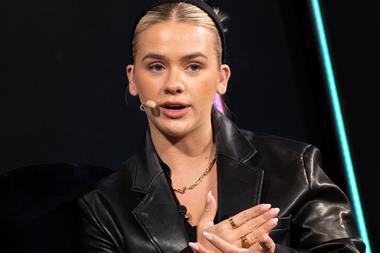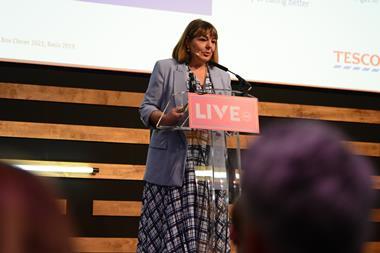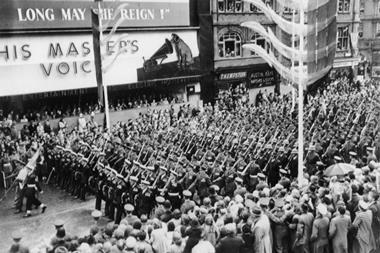Amazon is testing new technology that will allow customers of its Whole Foods grocery business to pay using nothing but their hands.
The etail giant is trialling its palm-scanning payment technology, known as Amazon One, at four Whole Foods stores close to its headquarters in Seattle.
Shoppers can register their palms with Amazon, which creates a “signature” based on lines, creases, veins, bones and soft tissue in the user’s palm. Consumers can then link their “signature” to their credit and debit cards to make payments.
Customers simply wave their hands over an in-store device, similar to contactless card payments.
The move comes just days after Retail Week revealed that Amazon is launching its first hair salon in London’s Spitalfields.
The site will feature another of Amazon’s new technologies, which allows visitors to simply point at a product, before information on the item is displayed on a digital screen. Shoppers can then scan a QR code using their smartphone to purchase the item via Amazon’s website.
Amazon plans to install its new ‘pay-by-palm’ technology, which it filed patents for back in 2019, into seven more stores in the coming months as it ramps up the trial.
Amazon One was first used last September, but was only available in a small number of Amazon Go stores in the US. This is the first time it has been extended into its Whole Foods business – and Amazon’s ambitions to extend the test suggests it is now eyeing a much wider roll-out.
Some experts have voiced security concerns over the tech, however. Customers’ palm signatures are stored in the cloud, which observers warned could be exposed to hackers.
Paige Bartley, senior research analyst for the Data, Artificial Intelligence and Analytics Channel at 451 Research, told The Guardian: “Biometric information is at higher risk of malicious actors, hackers and targeted attacks because the data can’t be changed if it’s compromised.
“If your credit card is stolen, you can cancel that card and change the number for it. When you have biometric information being stored, such as a palm print, and that information is compromised, I can’t change my palm print.”
When details of Amazon One were first unveiled by the company last year, its vice-president of physical retail and technology Dilip Kumar said: “We believe Amazon One has broad applicability beyond our retail stores, so we also plan to offer the service to third parties like retailers, stadiums and office buildings so that more people can benefit from this ease and convenience in more places.”

























No comments yet